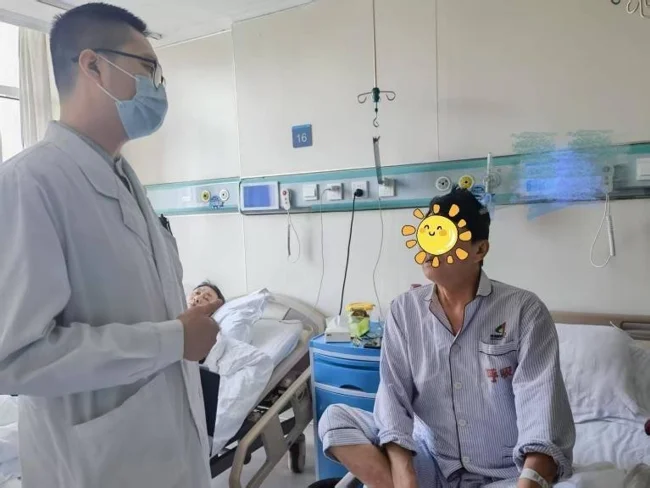A man was almost killed by his socks, or rather his strange habit (2 photos)
A Chinese man's unusual habit of sniffing his own dirty socks landed him in hospital after developing a serious fungal infection in his lungs. 
An office worker in Chongqing, southwest China, went to hospital with a severe cough that kept him awake at night despite taking over-the-counter medications. Medical tests showed signs of a serious infection in his right lung.
Doctors then performed a bronchoscopy, a procedure in which a thin, flexible instrument is used to take samples from the throat. Analysis of these samples showed that the patient had developed aspergillosis, a lung disease caused by the Aspergillus mold, which thrives in damp places.
The patient was questioned to find out where he might have contracted the fungus, and it turned out that he had often sniffed his socks after wearing them for a long time. Doctors then examined the man’s socks and found that they indeed contained the same strain of fungus that had infected the patient.
Hospital spokesman Luo Hu told local media that the socks had become an ideal breeding ground for the fungus.
“Wearing shoes for a long time creates a closed, damp and warm space that promotes the growth of fungi. If you sniff socks filled with fungi, they can enter the lower respiratory tract through the mouth and nose. If the immune system is weakened, this can cause diseases such as fungal pneumonia,” he explained.
Doctors reported that the patient responded well to antifungal medication and was discharged from the hospital. 
Interestingly, this is not the first time that Chinese people have been hospitalized after sniffing their socks. In 2018, local media reported on a 37-year-old man from Zhangzhou in southeastern China who was also hospitalized with a cough and chest pain. He told doctors that he was “addicted to the smell of his socks.” Doctors found that the “addiction” had led to a fungal lung infection caused by spores that had developed in his shoes.
This disease is rare in healthy people, but patients with lung diseases such as asthma or weakened immune systems (such as cancer patients) are at much higher risk of developing aspergillosis. Symptoms include breathing problems, coughing up blood or mucus, fever, weight loss, and fatigue. In severe cases, aspergillosis can lead to fatal bleeding in the lungs or pneumonia.
The fungus can also spread to other organs, such as the heart and brain. In these cases, called invasive aspergillosis, the mortality rate can be as high as 88% in patients with weakened immune systems.
To prevent the disease, doctors recommend avoiding contact with compost piles and fallen leaves, where the fungus is often found, and keeping your home well ventilated and heated in the winter to reduce the risk of infection.
Treatment for aspergillosis depends on the severity of the disease. Most patients recover with antifungal medications, although some must take them for life. In some cases, surgery may be needed to remove the "fungus balls" that can develop in the lungs.






























